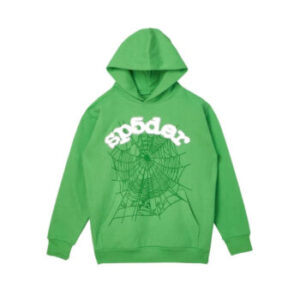The Globalization of Fashion
Fashion, in its essence, is more than just clothing; it’s a language, a culture, and a statement. Visit now https://superhoodieofficial.com/ In a world that is increasingly interconnected, the influence of fashion has transcended geographical boundaries, shaping trends, lifestyles, and identities across continents. From the bustling streets of New York City to the vibrant markets of Tokyo, the allure of fashion knows no bounds.
Fashion has always been a reflection of society, mirroring its values, aspirations, and dynamics. With the advent of globalization, the fashion industry has undergone a profound transformation. Boundaries that once confined style to specific regions have dissolved, giving rise to a global marketplace where ideas flow freely and trends evolve rapidly.
Cultural Exchange and Inspiration
One of the most significant impacts of globalization on fashion is the exchange of cultural influences. Designers draw inspiration from diverse traditions, weaving elements from different cultures into their creations. A runway show in Paris may feature motifs inspired by African art, while a street style in London may incorporate elements of Japanese minimalism. This cross-pollination of ideas not only enriches the creative landscape but also fosters a deeper appreciation for cultural diversity.
Accessibility and Connectivity
The rise of e-commerce and social media has democratized fashion, making it more accessible to people around the world. With just a few clicks, consumers can explore styles from every corner of the globe, breaking down barriers of distance and geography. Social media platforms serve as virtual runways, where influencers and tastemakers showcase the latest trends, sparking conversations and shaping consumer preferences in real-time.
The Power of Influence
In today’s digital age, influence knows no borders. Celebrities, bloggers, and influencers wield tremendous power in shaping the fashion landscape, transcending geographical constraints to reach a global audience. A single Instagram post or TikTok video can propel a niche brand to international acclaim, blurring the lines between local and global trends. Check it now https://spiderofficial.us/
The Rise of Sustainable Fashion
As awareness of environmental issues grows, so does the demand for sustainable and ethical fashion. Across the globe, consumers are increasingly conscious of the social and environmental impact of their clothing choices. This shift in mindset has prompted designers and brands to embrace sustainable practices, from using eco-friendly materials to implementing fair labor standards. Fashion has become a platform for activism, driving conversations about responsible consumption and environmental stewardship on a global scale.
Diversity and Representation
In an era of heightened awareness around diversity and inclusion, the fashion industry is undergoing a long-overdue reckoning. Consumers are demanding greater representation and inclusivity, challenging traditional notions of beauty and identity. From size-inclusive runways to campaigns celebrating cultural diversity, fashion has become a catalyst for social change, amplifying voices that have long been marginalized. The embrace of diversity not only reflects changing societal norms but also opens doors to new perspectives and narratives.
Navigating the Future of Fashion
As we look to the future, the landscape of fashion continues to evolve at a rapid pace. Emerging technologies such as artificial intelligence and augmented reality are reshaping the way we experience and consume fashion, offering new possibilities for personalization and innovation. The boundaries between physical and digital realms are blurring, creating immersive shopping experiences that transcend traditional constraints.
Embracing Innovation
In the face of constant change, adaptability and innovation are key to staying relevant in the fashion industry. Brands must embrace technology, sustainability, and inclusivity to meet the evolving needs and expectations of consumers. By harnessing the power of data analytics and consumer insights, companies can anticipate trends, personalize experiences, and drive meaningful engagement across global markets.
Fostering Collaboration
In a world that is increasingly interconnected, collaboration is essential for driving positive change in the fashion industry. From partnerships between designers and artisans to cross-sector initiatives promoting sustainability and social impact, collective action has the power to reshape the future of fashion. By sharing resources, knowledge, and best practices, stakeholders can work together to build a more inclusive, equitable, and sustainable fashion ecosystem.
Conclusion
Fashion transcends geographical boundaries, uniting diverse cultures, perspectives, and aspirations in a shared pursuit of self-expression and creativity. As we navigate an ever-changing world, the allure of fashion remains constant, offering a canvas for innovation, empowerment, and connection. Across continents and generations, the language of fashion continues to speak volumes, reminding us of the boundless possibilities that await those who dare to dream.






One Comment